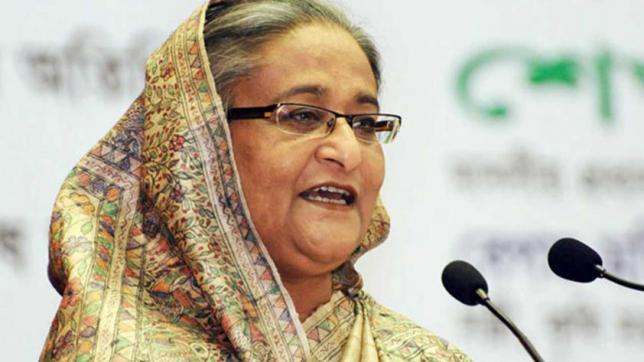The cabinet has expressed anger and discontent over chief justice Surendra Kumar Sinha’s observations in the 16th amendment verdict, terming these as ‘objectionable’ and ‘fishy’.
Several ministers took part in an unscheduled discussion on the 16th amendment verdict in a cabinet meeting on Monday and expressed their anger, saying the CJ’s observations might be motivated.
The court has gone beyond judicial matters, they said, adding that these observations might have had a motive.
A senior minister told Prothom Alo that prime minister Sheikh Hasina expressed her dissatisfaction over the issue, as well.
She advised the ministers to unveil the faults and errors of the verdict.
At least 15 ministers and state ministers discussed the verdict in the nearly two-hour meeting, chaired by PM Sheikh Hasina.
The cabinet members also said in the meeting that the Supreme Judicial Council could not be reinstated automatically as it needed national parliament’s nod.
Another minister, who was present in the meeting, told Prothom Alo the meeting discussed to appeal to the apex court for expunging the ‘irrelevant’ matters in the verdict.
On Tuesday, 1 August, the Supreme Court published the full verdict that declared the 16th amendment to the constitution illegal.
The 16th amendment was brought about by the incumbent government to investigate judges’ misconduct and recommend their impeachment.
In his observation in the 16th amendment, chief justice Surendra Kumar Sinha criticised the military rule, the election commission, good governance, corruption, democracy, the national parliament, interference in the judiciary, and on several issues, leading the government to an uncomfortable situation.
The government on Monday decided to give its reaction to the verdict.
Holding a press conference, law minister Anisul Huq will brief newsmen at 12:00pm on Thursday, said the public relations department of the ministry.
Several cabinet members, who were present at the meeting, told Prothom Alo, “At the end of the regular meeting, law minister Anisul Huq read out a few passages from the full verdict [of the Supreme Court] that cancelled the 16th amendment to the Constitution. Then the discussions began.”
“Several senior cabinet members said, if the general elections held on 5 January in 2014 is questionable and the parliament [formed by that election] immature, then is the President elected by this parliament controversial? And, if the president is controversial, then will the chief justice appointed by him remain beyond all question?” they asked.
More than one cabinet member, who took part in the discussion, also said, “The Supreme Court is not abiding by the act passed by the parliament. It wants to revert go back to the Supreme Judicial Council introduced during army rule.”
Grieved ministers said by any means, they won’t let the power of the president, endowed by Article 116, be diminished.
Several ministers remarked various “forces” are active ahead of the next general elections. Some of them questioned whether many of the observations [expressed in the verdict] are creating scope for those “forces”.
They also said that the observations contained a few objectionable comments about the government.
Some of the cabinet members think there are several flaws in the verdict and observations.
Members of the cabinet were advised to read the verdict attentively and highlight its discrepancies when some of the ministers drew prime minister’s attention to the remarks of finance minister about the verdict.
Ministers told Prothom Alo that they also will talk about it. The prime minister asked them to mobilise public opinion [about the discrepancies of the verdict].
State minister for labour and employment Mujibul Haque (Chunnu) told Prothom Alo, “The Supreme Judicial Council was formed during the time of military rule in 1977 following Pakistan. Later, the Article 96 was reinstated [in the Constitution] following many democratic countries. This is sad that the court has declared it illegal.”
The state minister also said, “Personally I feel that Article 96 will give protection to the justices more than the Supreme Judicial Council. This is more balanced.”
On 3 July, the Appellate Division of the Supreme Court upheld a High Court verdict that declared illegal the 16th amendment to the Constitution.
The amendment empowered the parliament to remove the Supreme Court judges in cases of incapacity of misconduct.
The cabinet members expressed their dissatisfaction with the verdict on that day too. Later, on 9 July, the MPs expressed their grievance in parliament also.
Once again, discussions begin when the apex court published the full verdict on 1 August scrapping the power of parliament to remove its judges.
Source: Prothom Alo

